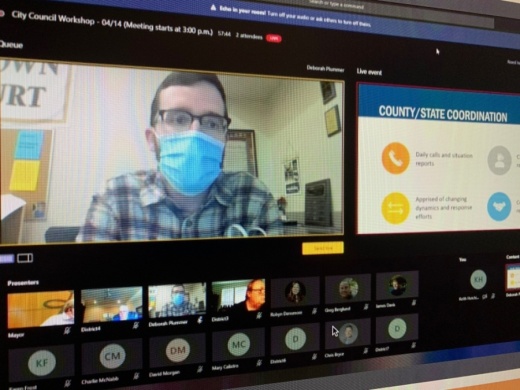The city has spent $181,000 on the pandemic, mostly in cleaning supplies and services, medical and protective supplies, and communication upgrades to connect city administration and staff.
Wallace said on the list of unknown costs, the city will keep an eye on fire and EMS overtime, unfunded mandates for employees, and the likelihood of needed additional staff at the Williamson County and Cities Health District.
Reductions started in March and have continued through April, including the reduction of operational expenses, holding vacant positions open unless they are vital to city operation and safety, and eliminating training and travel. Wallace also said the city will review all capital improvement projects for a presentation at the April 28 meeting.
Georgetown’s cash surplus in major funds shows the ability to pay for 373 operating days.
“We were in a pretty good starting position,” Wallace said. “We will do the best we can to watch our revenues and pull back on our expenses.”
Revenue models presented by Wallace showed sales tax being the most volatile source of income, with a 1% decrease in March, a predicted 8% drop in April and May and a 7%-10% fall in August and September, with the caveat being how fast the economy will reopen in Georgetown. Those numbers would be a $750,000 loss of sales tax headed into the end of the fiscal year, which is Sept. 30.
On that financial watchlist, Wallace said hotel occupancy taxes, utilities, development fees, municipal court, airport fuel leases, library programs, park programs and rentals, GoGeo reductions and interest earnings will all cut into the city’s revenue stream.
City Manager David Morgan said part of the emergency coronavirus expenditures will be submitted for reimbursement, but recovering costs “can take years to get the money back.”





